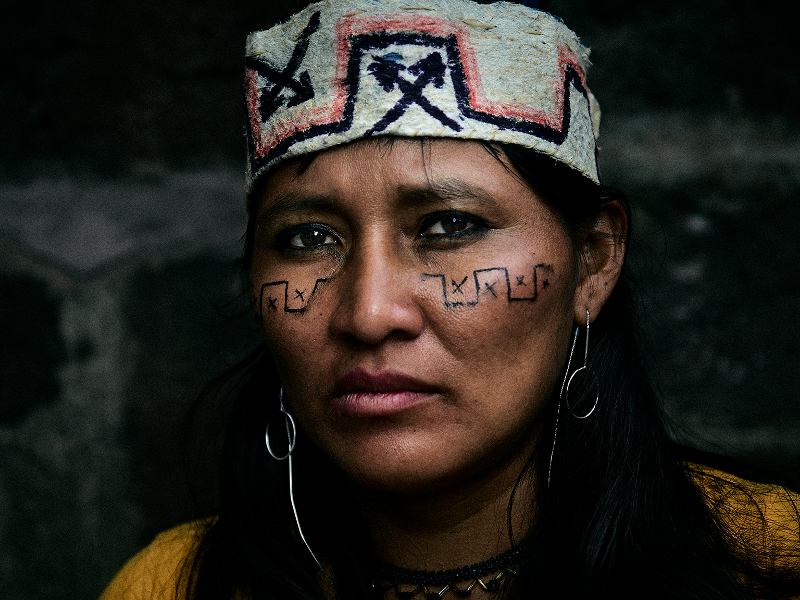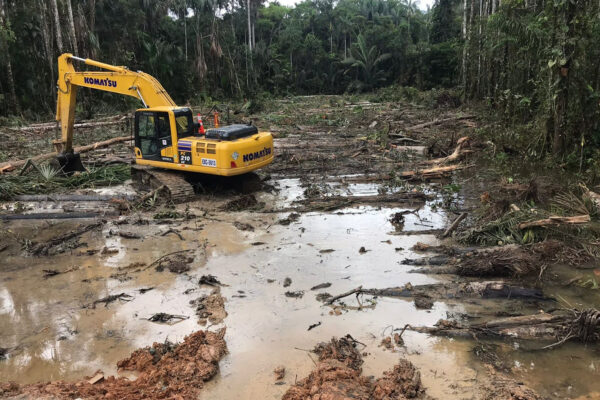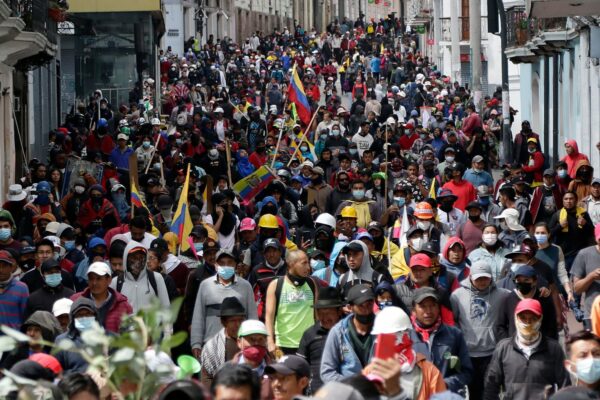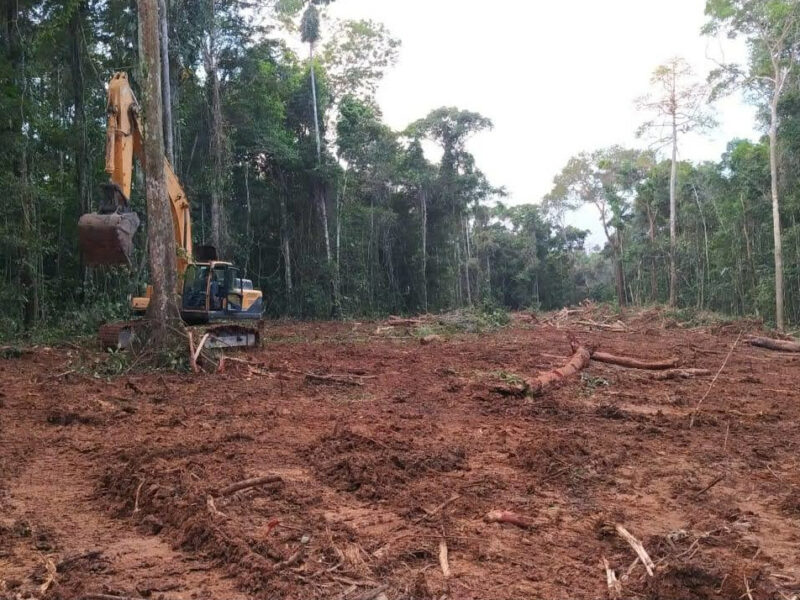Photos by Santiago Cornejo
For decades, oil companies have taken advantage of the resource-rich land of the western Amazon, violating the basic human rights of the indigenous people while simultaneously inflicting harm and destroying the beautiful rainforest. Indigenous communities have responded with powerful messages, defending their land at all costs. At the forefront of this ongoing battle are the strong, resilient indigenous women Earth Defenders.
Some have faced death threats and attacks for their courageous work to defend their rights and their Amazon territories. Yet instead of backing down, they have redoubled their efforts to assure an Amazon rainforest free of natural resource extraction and an end to threats against them and other Earth Defenders.
These women, united under the banner of “Women Defenders of the Amazon Against Natural Resource Extraction,” carried out a series of marches and protests in In March of 2018 that eventually took them to Ecuador’s capital, Quito, and all the way to an unprecedented meeting with President Lenin Moreno. There, they denounced rights abuses, the environmental impacts of extraction, and the overall climate of violence that the industry has created for women. They also presented the President with a series of demands for the protection of their rights and of the Amazon. Amazon Watch accompanied these marches and protests, and we continue to stand with them.
The Sapara Nation of the Ecuadorian Amazon is recognized by UNESCO as an “Intangible Cultural Heritage of Humanity” because their language and culture are in danger of disappearing. There are about 500 Sápara people still living in their ancestral home; though the Sápara population is small, their territory is quite large and is a critical part of the Amazonian ecosystem. However, Sapara territory – and the Sapara themselves – are in serious danger from oil drilling planned for two oil blocks that overlap with approximately 500,000 acres of their ancestral territory.
Irene Toqueton Vargas, Sapara, Women’s Leader
The Shuar people, whose ancestral territory straddles the border between the Andes and the Amazon, are struggling to protect their rights and territories since the Ecuadorian government sold the rights for an open-pit copper mine project to Explocobres, a subsidiary of two Chinese companies. In recent years the communities have faced violent evictions, criminalization and threats due to their opposition to the damaging impacts of the mine.
The Kichwa of Sarayaku, whose territory lies in the Ecuadorian Amazon, are a visionary people who have succeeded in protecting their territory from oil drilling and are now sharing their model of care
and relationship with the rainforest to the world.
The community of Moretecocha has suffered for decades from the efforts of the government and oil companies to find any and all oil in the area. A principle culprit is Italian oil giant ENI, which has operated in the region for 28 years and has plans to expand its drilling deeper into the rainforest. Community leaders who have spoken out against the impacts of ENI’s operations, like Salome Aranda, have faced threats and attacks. Aranda was attacked while in her home with her family soon after ENI was confronted at its annual shareholder meeting for its drilling in Moretecocha despite lack of community consent. Nonetheless, Aranda and others like Rosa Cuni continue their work to defend their community.
Waorani ancestral territory abuts, and in some places is overlapped by, Yasuni National Park in the Ecuadorian Amazon. Despite supposed protections in this region, over the last half-century the oil industry has opened roads for oil platforms and pipelines into the heart of Waorani territory. Now, the government wants to sell rights to exploit oil in one of the last remaining oil-free, roadless areas in Waorani territory.
Zoila Irumenga, Waorani of Tobera























